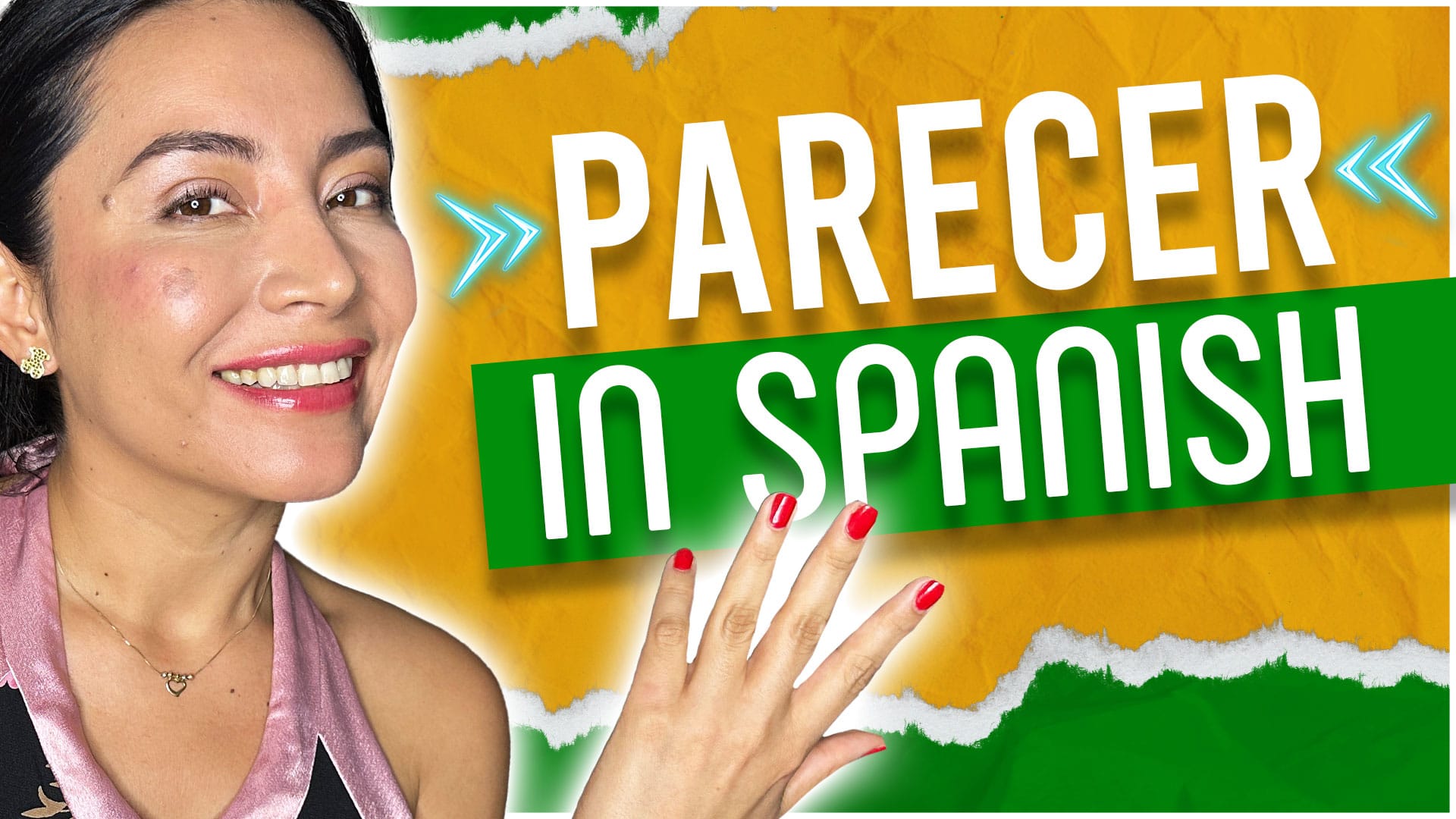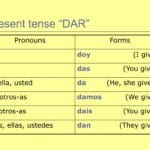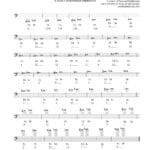This comprehensive guide unlocks the intricacies of conjugating the Spanish reflexive verb ducharse. From understanding its core meaning to mastering its various forms across different tenses and moods, you’ll be equipped to confidently discuss showering routines and more in Spanish.
Understanding Ducharse
Ducharse means “to shower oneself,” emphasizing the action of showering directed back at the subject. This reflexive nature is crucial to its conjugation. Unlike its transitive counterpart duchar (to shower someone or something else), ducharse always uses reflexive pronouns. These pronouns – me, te, se, nos, os, se – signal that the subject performs the action upon themselves. For example, “Yo me ducho” (I shower myself).
Conjugation Tables: Your Quick Reference
The following tables provide a comprehensive overview of ducharse conjugation across key tenses and moods. Remember, the reflexive pronoun must accompany the verb in all forms.
Present Indicative
This tense describes habitual actions or current states. Note the irregularity of the yo form (me ducho).
| Pronoun | Conjugation | Translation |
|---|---|---|
| Yo | me ducho | I shower |
| Tú | te duchas | You shower |
| Él/Ella/Usted | se ducha | He/She/You (formal) shower(s) |
| Nosotros | nos duchamos | We shower |
| Vosotros | os ducháis | You (plural, informal) shower |
| Ellos/Ellas/Ustedes | se duchan | They/You (plural, formal) shower |
Preterite Indicative
This tense describes completed actions in the past.
| Pronoun | Conjugation | Translation |
|---|---|---|
| Yo | me duché | I showered |
| Tú | te duchaste | You showered |
| Él/Ella/Usted | se duchó | He/She/You (formal) showered |
| Nosotros | nos duchamos | We showered |
| Vosotros | os duchasteis | You (plural, informal) showered |
| Ellos/Ellas/Ustedes | se ducharon | They/You (plural, formal) showered |
Imperfect Indicative
This tense describes habitual or ongoing actions in the past.
| Pronoun | Conjugation | Translation |
|---|---|---|
| Yo | me duchaba | I used to shower/I was showering |
| Tú | te duchabas | You used to shower/You were showering |
| Él/Ella/Usted | se duchaba | He/She/You used to shower/was showering |
| Nosotros | nos duchábamos | We used to shower/We were showering |
| Vosotros | os duchabais | You (pl., inf.) used to shower/were showering |
| Ellos/Ellas/Ustedes | se duchaban | They/You used to shower/were showering |
Future Indicative
This tense describes actions that will occur in the future.
| Pronoun | Conjugation | Translation |
|---|---|---|
| Yo | me ducharé | I will shower |
| Tú | te ducharás | You will shower |
| Él/Ella/Usted | se duchará | He/She/You will shower |
| Nosotros | nos ducharemos | We will shower |
| Vosotros | os ducharéis | You (pl., inf.) will shower |
| Ellos/Ellas/Ustedes | se ducharán | They/You will shower |
Conditional Indicative
This tense describes hypothetical actions or actions that would occur under certain conditions.
| Pronoun | Conjugation | Translation |
|---|---|---|
| Yo | me ducharía | I would shower |
| Tú | te ducharías | You would shower |
| Él/Ella/Usted | se ducharía | He/She/You would shower |
| Nosotros | nos ducharíamos | We would shower |
| Vosotros | os ducharíais | You (pl., inf.) would shower |
| Ellos/Ellas/Ustedes | se ducharían | They/You would shower |
Present Subjunctive
This mood expresses desires, doubts, or possibilities.
| Pronoun | Conjugation | Translation |
|---|---|---|
| Yo | me duche | That I shower |
| Tú | te duches | That you shower |
| Él/Ella/Usted | se duche | That he/she/you shower(s) |
| Nosotros | nos duchemos | That we shower |
| Vosotros | os duchéis | That you (pl., inf.) shower |
| Ellos/Ellas/Ustedes | se duchen | That they/you shower |
Imperative Mood (Commands)
This mood gives instructions or commands. Note the irregular tú affirmative command (dúchate).
Affirmative:
| Pronoun | Conjugation | Translation |
|---|---|---|
| Tú | dúchate | Shower (yourself)! |
| Usted | dúchese | Shower (yourself)! |
| Nosotros | duchémomosnos | Let’s shower! |
| Vosotros | duchaos | Shower (yourselves)! |
| Ustedes | dúchense | Shower (yourselves)! |
Negative:
| Pronoun | Conjugation | Translation |
|---|---|---|
| Tú | no te duches | Don’t shower! |
| Usted | no se duche | Don’t shower! |
| Nosotros | no nos duchemos | Let’s not shower! |
| Vosotros | no os duchéis | Don’t shower! |
| Ustedes | no se duchen | Don’t shower! |
Informal Future: Ir a + Infinitive
A common way to express the near future is with the construction ir a + infinitive. For ducharse, this would be: me voy a duchar (I’m going to shower), te vas a duchar (you’re going to shower), and so on.
Duchar vs. Ducharse: A Key Distinction
While ducharse doesn’t have a stem change, the non-reflexive duchar (to shower someone/something else) does. The stem changes from duch- to duch- in the present tense, except for nosotros and vosotros. For example, yo ducho a mi perro (I shower my dog). Understanding this difference is essential for accurate communication.
Common Mistakes to Avoid
- Omitting the reflexive pronoun: Always include the appropriate reflexive pronoun with ducharse.
- Confusing duchar and ducharse: Use duchar for showering someone/something else and ducharse for showering oneself.
- Misplacing the pronoun: The reflexive pronoun typically precedes the conjugated verb.
Tips for Mastering Ducharse
- Practice consistently: Use flashcards, quizzes, and writing exercises to reinforce your understanding.
- Immerse yourself in Spanish: Engage with Spanish-language media to hear ducharse used naturally.
- Focus on the reflexive concept: Grasping the reflexive nature of the verb will help you use it correctly.
Beyond Ducharse: Other Reflexive Verbs
Spanish has many reflexive verbs, including dormirse (to fall asleep – Would you like to know how to conjugate the verb “dormirse”? Click here to learn more about the dormirse conjugation), levantarse (to get up), acostarse (to go to bed), and vestirse (to get dressed). Learning these verbs can significantly enhance your conversational fluency.
By studying this guide and practicing consistently, you’ll be well on your way to mastering ducharse and confidently incorporating it into your Spanish conversations. Remember that language is constantly evolving, so what is considered grammatically correct may shift over time. Continuous learning and exposure to native speakers will enhance your understanding and fluency.
- Unlock Elemental 2 Secrets: Actionable Insights Now - April 2, 2025
- Lot’s Wife’s Name: Unveiling the Mystery of Sodom’s Fall - April 2, 2025
- Photocell Sensors: A Complete Guide for Selection and Implementation - April 2, 2025

















1 thought on “Ducharse Conjugation: A Complete Guide with Examples”
Comments are closed.